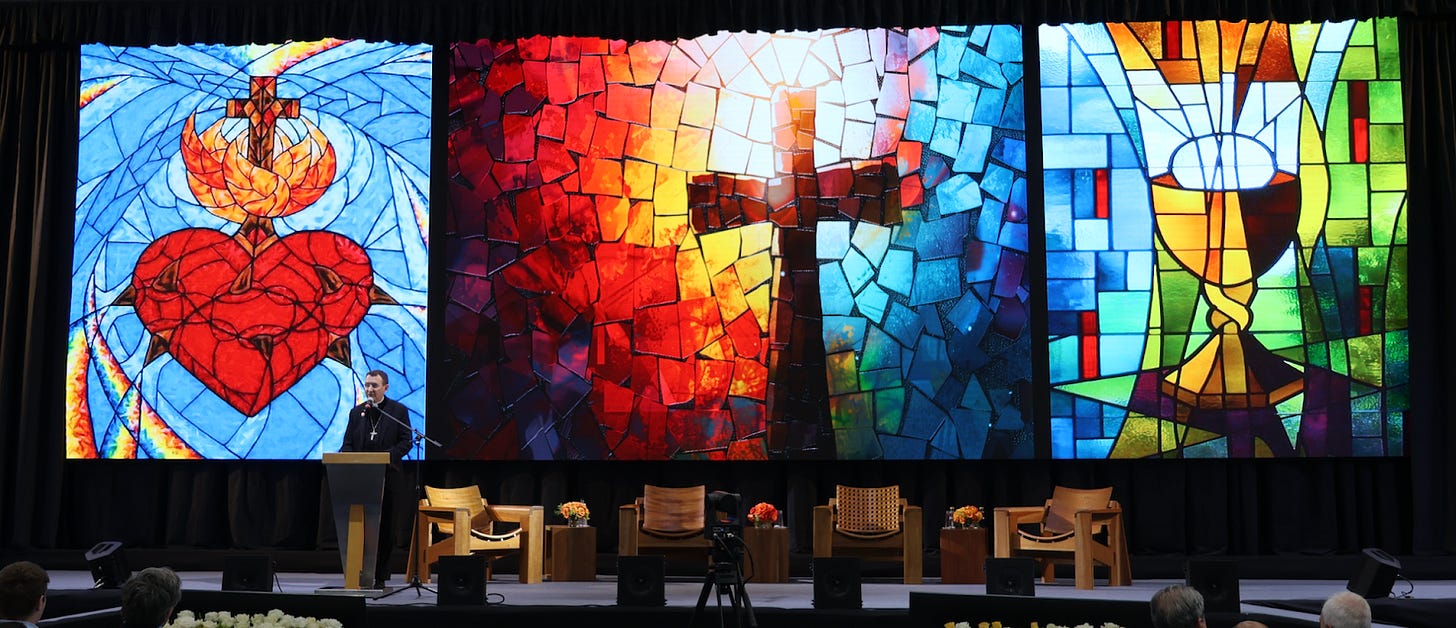Cozzens: ‘The power of Christ’s light’
Catching up with Bishop Andrew Cozzens at the International Eucharistic Congress
As thousands of Catholics attend the Church’s International Eucharistic Congress in Quito, Ecuador, one bishop can’t seem to cross a room without being mobbed by pilgrims who want to take a photo, or have their rosaries blessed by him, or share with him some story of God working in their lives.
That prelate is Bishop Andrew Cozzens, of Crookston, Minneso…

